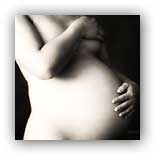News and Insights for
your best life. Online since 1998
- Home Health
- Breaking news
- In caso di...
- Per saperne di
più... - Medicina occidentale
- Medicine complementari
- Medicina cinese
e agopuntura - Omeopatia
- Fitoterapia

Previous human and animal studies have shown that specific memories arise during prenatal life as a function of fetal processing of chemosensory stimuli present in the amniotic fluid. Furthermore, the animal literature indicates that fetal exposure to alcohol modifies subsequent neonatal and infantile responsiveness toward the sensory attributes of the drug. The main goal of the present study was to analyze whether differential maternal alcohol consumption during pregnancy affects neonatal reactivity to ethanol odor.

To achieve this goal, an initial experiment examined how healthy human neonates respond to olfactory stimuli.
In this first experiment, newborns (postpartum age: 24-48 h) were evaluated in terms of motor responsiveness elicited by repetitive stimulation with either alcohol or lemon odors.
Infants exhibited a marked increase in duration of overall body and head and facial activity when the odorants were first presented.
In four successive trials, behavioral responsiveness progressively declined until reaching baseline values.
The introduction of a novel odorant served to dishabituate the motor responses under analysis.
In the second experiment newborn's reactivity to the mentioned odorants was evaluated as a function of maternal self-reported patterns of consumption of alcohol during gestation.
Mothers were classified as frequent or infrequent drinkers.
Babies born to frequent drinkers exhibited heightened reactivity toward ethanol odor when compared to newborns delivered by infrequent drinkers. No differences emerged when comparing the responses of both groups of infants elicited by a non-ethanol stimulus such as lemon.
The results coupled with prior human and animal research suggest the possibility of intrauterine experience with alcohol odor that yields a sensory memory likely to be retrieved immediately after birth.
See also:
Limited amounts of alcohol during pregnancy do not harm children (2013-10-03)
For more information
http://www.ncbi.nlm.nih.gov/pubmed/11109023
MDN
del Dott. Turetta
Quali sono i problemi o le disfunzioni che possono giovarsi di un intervento omeopatico d'urgenza e, di conseguenza, come dovrebbe essere un ideale armadietto medicinale omeopatico casalingo.- Home -
- Health -
- Depressione -
- Sexuality
- Environment -
- Food -
- Musica -
- Capirsi -
- Grafologia -
- Ridere
Copyright © 1998/2018 www.mybestlife.com tutti i diritti sono riservati eccetto quelli già di altri proprietari.
.In caso di
Pubblicità
Per saperne di più su
Pubblicità
Pubblicità
Pubblicità
Pubblicità


